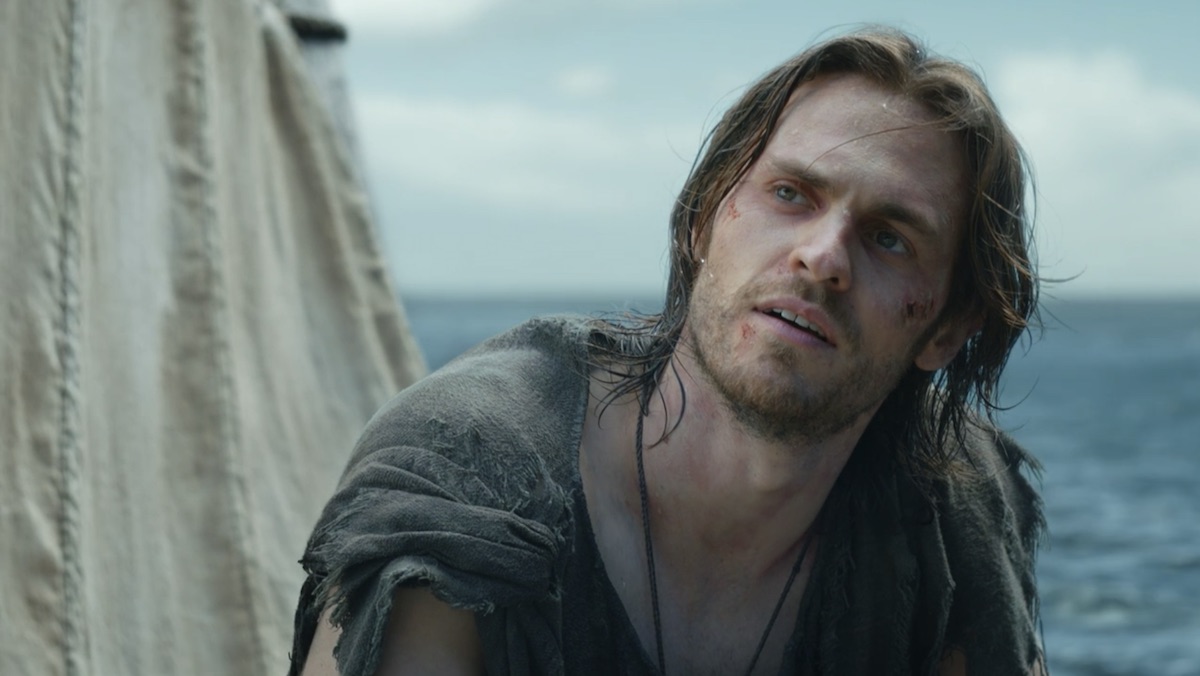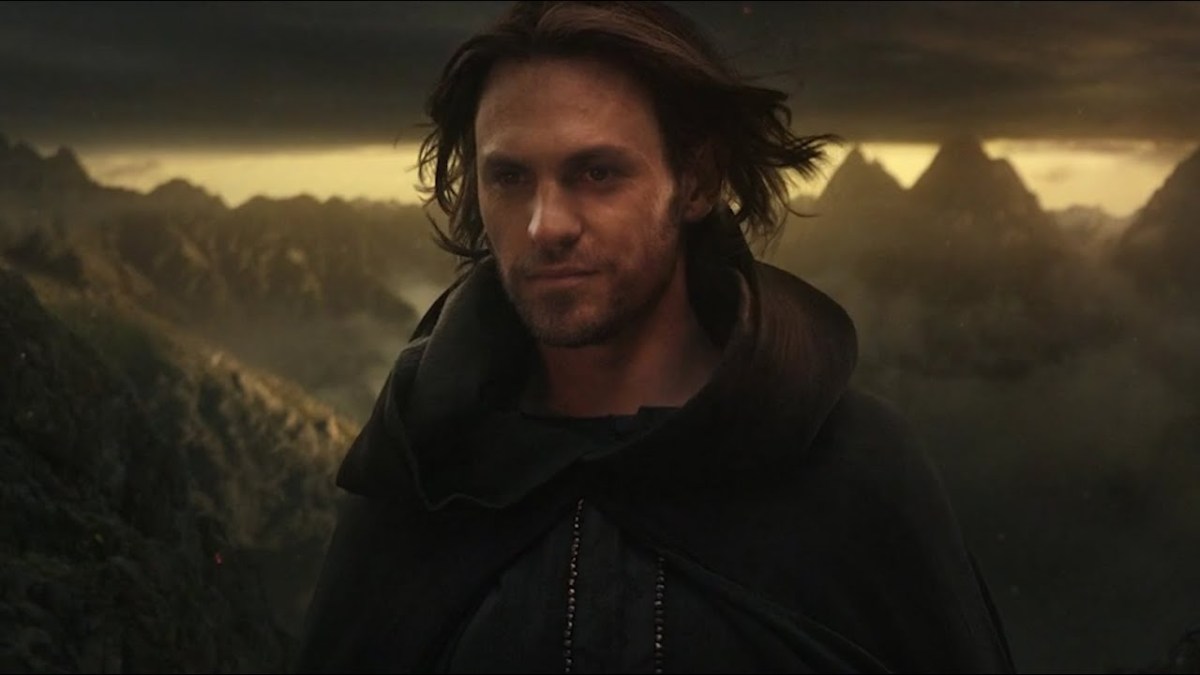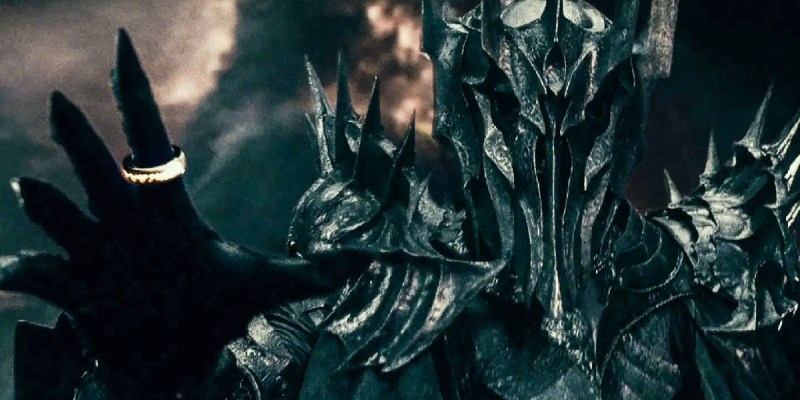This article contains spoilers for The Lord of the Rings: The Rings of Power on Amazon in its discussion of the character of Sauron.
In all the work we have seen from Peter Jackson and other creatives regarding the character of Sauron, the most infamous evil within Middle-earth and beyond, he is simply a force. The ever-watchful eye casts an eternal shadow over Mordor. With The Rings of Power though, we are given a story to go with the Lord of Mordor. Sauron is fleshed out, given a personality, flaws, and motivations, and it is this that has further enamored me to the fallen angel of the Maiar.
The Rings of Power shows us the purity of Sauron, the purity of his darkness. His thoughts are so bent on what he believes in that his convictions appear absolute. Yet when Morgoth was defeated in the First Age, he was shaken to the core. Could he be wrong? Possibly for the first time in his existence, an existence that began before the breaking of the first silence, he is wracked with self-doubt.
This is where Galadriel meets him in The Rings of Power. He is figuratively and literally cast adrift, lost among the flotsam and jetsam. He is searching for peace. Like all great villains, there is a sense of familiarity within his machinations. Maybe that is why he is so terrifying, because this god has an all too human flaw, desires.
Perhaps the most fascinating element of Charlie Vickers’ portrayal of Sauron is that he is simultaneously recognizable yet mysterious. What is chance and what is fate? What is his doing and what did he allow to happen? Is his regret genuine or another trick? He openly apologizes to Galadriel for the death of her brother. It is a twofold apology that on second viewing has so much more meaning. Was it sincere though? Halbrand had us all believe it.

In the books, it is clear that when Sauron came to the Elves as Annatar, he seduced them with promises and gifts. With the creation of Halbrand, Sauron becomes more than a flaming eye to terrify his foes; he is given a voice to deceive and flesh to lay him low in the eyes of his new allies. Galadriel finds a kindred spirit with which to battle against their common foes. He helps Celebrimbor solve an unsolvable puzzle. And with his pouch, Halbrand becomes a beacon of hope for the Southlanders.
Within the eight episodes of the first season of The Rings of Power, Sauron manipulates all those around him without even telling a lie. He becomes the “Lord of Gifts” in all but name. Then comes his first victory on screen, his battle against the forces of Adar. When he fights with Galadriel and the men of Númenor against the Uruk and his children, they conquer a force that tried to bring darkness back to Middle-earth. This is the turning point for Halbrand. He has vanquished a foe, redeemed himself after his great failure during the War of Wrath. It is here he finds purpose again, and he hungers for it. He wishes to keep it with his whole being, “If I could just hold on to that feeling, keep it with me always, bind it to my very being…”
Then Mount Doom is born, and with it, Halbrand is lost, thought dead along with countless others. I believe Halbrand did die that day and Sauron returned. He was given new purpose from his victory, by the people of the Southland cheering for the return of the rightful king of this realm and by the opportunity given to him when Galadriel said she would bring him to Eregion to heal.

From there he learns swiftly, finally understanding that he can use the pride of the Elves to bring himself unchallenged power. However, he does something that I don’t believe the original telling of Sauron would have ever thought to do. He wishes to share this power with Galadriel. You could look at this as Sauron being quite a pathetic individual. He needs someone to bind himself to.
First there was Morgoth and now Galadriel. He himself is not strong enough to carry the weight of the crowns he covets. Galadriel after all would bind him to the light, and he would bind her to power. It is a perfect partnership, and on the surface, all is well — except underneath it is a current of tyranny that not even his powers of deception could hide.
The symbolism of the raft scene perfectly showcases the duality of Sauron. He offers a gift in one hand while preparing to drown you with his other hand. It is this ambiguity combined with the fact that he has not outright lied to Galadriel that shows there is hope, perhaps a fool’s hope that Sauron has changed.
Unfortunately, we know that he cannot change because when he is asked a simple question about the difference between saving Middle-earth and ruling it, he answers with a blunt “I see no difference.”
Sauron is never outright described by J.R.R. Tolkien; some of his letters described him briefly as a little larger than human stature but not giant in the First Age when he joined Morgoth. With The Rings of Power, Sauron has been fully fleshed out as a character. Now I am invested in him because I am both fascinated and terrified of what part of his journey we will see next.
